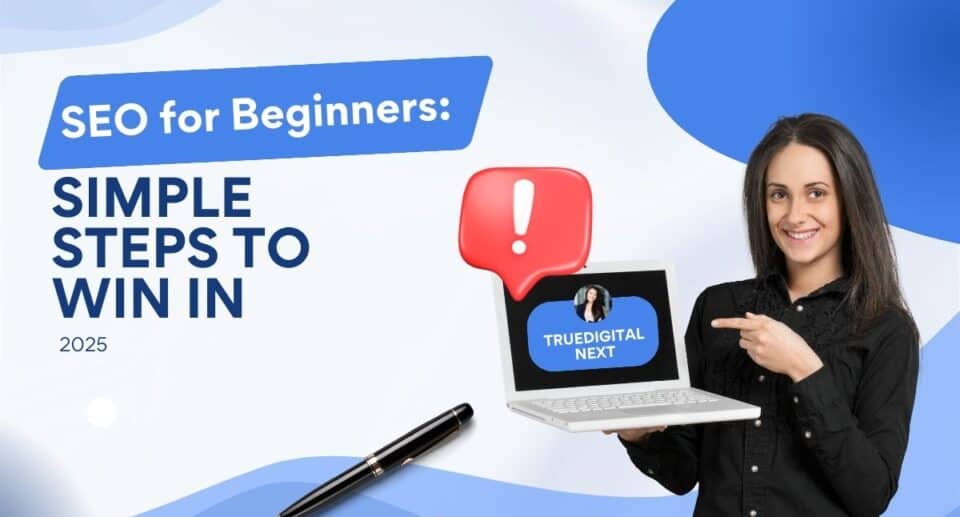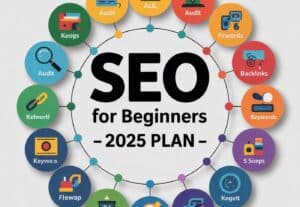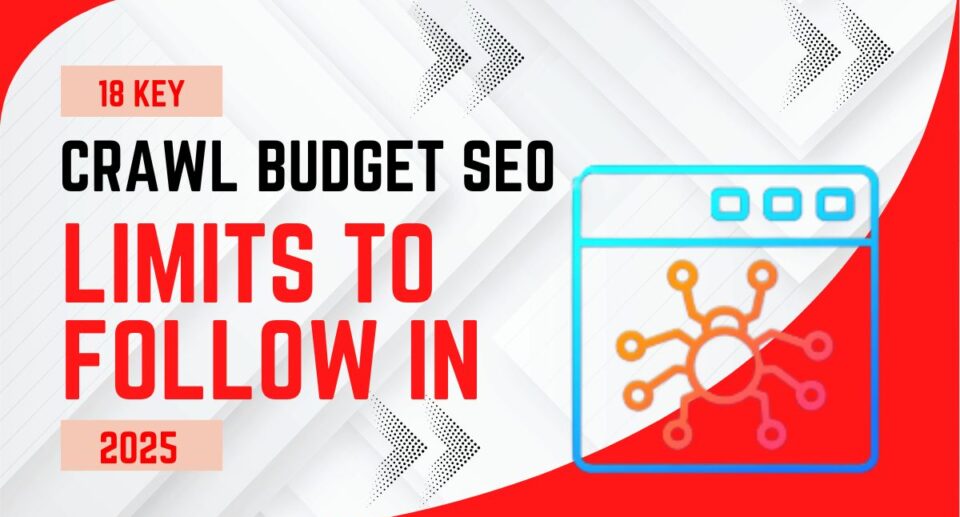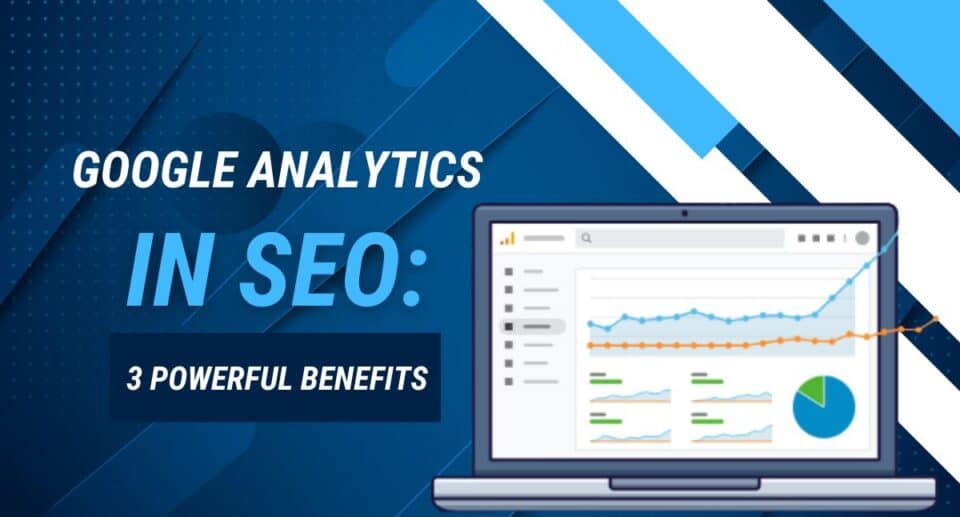SEO for Beginners: Simple Steps to Win in 2025

Introduction
Are you new to SEO and overwhelmed by all the updates, tools, and strategies? You’re not alone. In 2025, SEO is no longer about stuffing keywords or just having backlinks—it’s about creating a user-first, AI-friendly, and value-driven digital presence. With Google putting more focus on E-E-A-T (Experience, Expertise, Authoritativeness, Trust), now is the time to build a strong SEO foundation.
This blog is your A to Z guide tailored specifically for those who are starting their SEO journey. If you’re looking to master SEO for beginners, this blueprint is all you need to future-proof your rankings and drive long-term organic traffic.
Why SEO Matters in 2025
SEO isn’t just a marketing trend—it’s your silent salesperson. In 2025, SEO plays a more significant role than ever thanks to shifts in search behavior. People are using voice search, AI chatbots, and smart assistants like never before. Google is also rewarding real human expertise and original helpful content.
The big shift? SEO now blends technical know-how with brand building and trust seo for beginners.
 A to Z SEO Plan: Explained in Simple Terms
A to Z SEO Plan: Explained in Simple Terms
Let’s break down this plan alphabetically so it’s easy to remember and even easier to apply.
A – Audit
Start with a full SEO audit using tools like Screaming Frog or Sitebulb. Identify what’s broken—like 404s, missing metadata, and slow-loading pages.
Tip: Run audits every quarter to stay ahead of technical issues.
B – Backlinks
Think of backlinks as “votes of trust” from other websites. Aim for links from high-authority, niche-relevant sites. Use tools like Ahrefs to monitor your backlink profile.
C – Content
Write to solve real problems. Blog posts, videos, infographics—whatever helps your audience. Update old content regularly to keep it fresh.
Statistic: Businesses that blog regularly generate 67% more leads than those that don’t.
D – Domain Authority
This is a metric (scored 1–100) that reflects your website’s reputation. Build it with consistent quality content and links seo for beginners.
E – E-E-A-T
Showcase your experience and expertise. Add author bios, credentials, and trust badges. Google wants to know: Why should people trust you?
F – Featured Snippets
Write clear, direct answers to common questions. Use bullet points and headings. These snippets can help you grab Position 0 on Google.
G – Google Search Console
This free tool shows you how your site performs on search. Use it to track indexing, fix errors, and find top-performing pages.
Use Google Search Console here seo for beginners.
H – Headings
Structure content properly. Use one H1, then H2s and H3s to organize thoughts. Headings help both SEO and readability.
I – Internal Linking
Link to related blog posts or services within your content. It improves crawlability and user navigation.
J – JavaScript SEO
If your site uses JavaScript, ensure your content is renderable and indexable. Use tools like Google’s Mobile-Friendly Test.
K – Keywords
Use keyword clusters—not just one keyword. Focus on intent. Use tools like Ubersuggest or AnswerThePublic.
L – Loading Speed
Optimize Core Web Vitals. Compress images, reduce scripts, and consider a CDN.
M – Mobile-First
Design your website for mobile devices. 60%+ of users now browse on their phones.
Analogy: Designing desktop-first in 2025 is like writing letters in the age of WhatsApp seo for beginners.
N – Navigation
Clean menus, logical structure, and breadcrumbs help both users and bots find their way.
O – On-Page SEO
This includes title tags, meta descriptions, alt texts, and headers. It’s your basic hygiene—don’t skip it.
P – People Also Ask
Use the “People Also Ask” section in Google SERPs to find new content ideas and expand topical authority.
Q – Quality Signals
Ditch thin content and clickbait. Focus on originality and usefulness.
R – Reviews & Reputation
Encourage Google Reviews, Trustpilot ratings, and testimonials. Social proof matters.
S – Structured Data
Use schema.org markup to help Google understand your content. Use plugins like Schema Pro for WordPress.
T – Title Tags
Make them clickable and keyword-rich. Keep them under 60 characters.
U – User Experience
Focus on bounce rate, page speed, mobile-friendliness, and easy navigation.
V – Voice Search
Use conversational phrases and long-tail keywords. People speak differently than they type.
W – Web Accessibility
Follow WCAG Guidelines to make your site usable for everyone, including those with disabilities.
X – XML Sitemap
Keep an updated sitemap and submit it to Google Search Console. It helps Google crawl your pages efficiently.
Y – YouTube SEO
Don’t ignore video! Optimize titles, descriptions, and add subtitles. YouTube is the second-largest search engine after Google.
Z – Zero-Click Searches
Users get answers directly from search pages. Adapt by strengthening your brand visibility and offering value even without clicks.
 Case Study: Local SEO for a Boutique Store
Case Study: Local SEO for a Boutique Store
One of my early clients—a boutique clothing store—struggled with foot traffic and online sales. We:
Started by auditing their slow-loading Shopify store.
Built topic clusters around “affordable dresses in Hyderabad.”
Got listed on Google Business and collected over 50 reviews in 3 months seo for beginners.
Added schema markup and improved internal links.
In 6 months, their organic traffic doubled, and they started getting walk-ins from people who found them online.
Visual Suggestion
Create a “A to Z SEO Poster” infographic with one colored box per letter, small icon illustrations, and tool suggestions beneath each. Perfect for Pinterest or LinkedIn seo for beginners.
Competitor Inspiration
Backlinko’s SEO Guide is detailed but very advanced. What sets your post apart is simplicity and beginner-friendliness, which many SEO experts miss.
Conclusion
SEO doesn’t have to be complicated. With this A to Z SEO plan, beginners can confidently take their first steps in mastering search engine optimization in 2025. Focus on quality content, build trust, stay updated, and use the right tools—and you’ll see results in 3 to 6 months.
Call to Action
Download Our Free A-Z SEO Checklist for Beginners
Subscribe for Monthly SEO Tips and Google Updates
 5 SEO FAQs for Beginners
5 SEO FAQs for Beginners
Q1: How do I get started with SEO for beginners?
Start by learning from Google’s SEO Starter Guide and performing an audit using tools like Ubersuggest.
Q2: Can I do SEO without technical skills?
Yes! Tools like Yoast, Rank Math, and Google Search Console simplify most tasks for non-technical users.
Q3: How much content should I publish per month?
Consistency matters more than quantity. Start with 2–4 quality blog posts per month seo for beginners.
Q4: What’s the best free SEO tool for beginners?
Google Search Console is a great start. Add Ubersuggest for keyword research seo for beginners.
Q5: How long does it take to rank on Google?
Usually 3–6 months if you consistently publish helpful, optimized content and follow best practices seo for beginners.

 A to Z SEO Plan: Explained in Simple Terms
A to Z SEO Plan: Explained in Simple Terms
 Case Study: Local SEO for a Boutique Store
Case Study: Local SEO for a Boutique Store
 5 SEO FAQs for Beginners
5 SEO FAQs for Beginners



